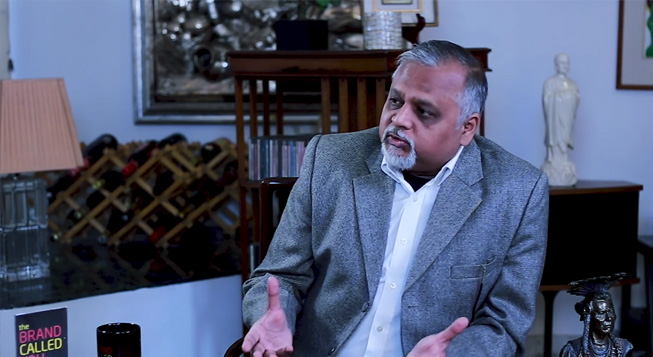Podcast: Play in new window | Download
Follow TBCY RSS
Alok Agarwal is a media professional who recently forayed into entrepreneurship. Having spent over two decades in advertising and media, he feels that he always possessed an entrepreneurial streak. Alok is from IIT Kanpur and IIM Bangalore and then went on to Wharton University. He worked in advertising to begin with and then moved to media – fields that he asserts are symbiotic but completely different from each other. He worked with Zee and went on to become COO of Network18. Finally, he moved on to his entrepreneurial journey with Growth Labs.
Alok shifted to the media industry at a time when it had relatively matured. From Doordarshan and single cinema halls, it has come a long way to a plethora of channels and multiplexes. Today, India has over 400 news channels alone. Broadcast media has reached full maturity and is a difficult market for a new player.
When Alok joined the media, the first real impact of digital media was just starting to seep in. Although there was not enough bandwidth available for streaming services then, digital news media had started taking over. “In the last couple of years, OTT services have really taken off and streaming services are getting a lot of traction.”
On how millennials are changing media
“Millennials prefer digital media over the traditional format. Most of them do not read the papers or watch TV. They do almost everything on their handheld devices.”
Alok however, questions the sources of information available on these devices. Since a lot of their awareness comes from social media, that propagates news whose sources may be suspect, he is concerned about the growing levels of fake news.
He does not seem too worried about the future of traditional broadcast media. “In a country as vast as ours, we still haven’t been able to reach 100% of the population using traditional media. To expect newer forms of media to reach them is still some time away.” India is possibly the only market where print media is still growing. He is certain that there is still abundant scope for traditional media.
Growth labs
Alok’s venture, Growth Labs primarily focuses on bringing innovation and startup engagement to large corporations.
“Large companies and traditional outfits are caught in a time warp.”
He says that their processes, technologies and functioning are designed for an era gone by. He argues that the rapid change across all industries is not just due to technological changes. There are also newer business models and processes. Growth Lab’s efforts are towards getting big companies to adopt these newer ways to stay relevant and competitive in the market.
They also help companies to scale up by increasing revenue lines. They not only focus on increasing revenue for these companies but also how to create incremental gains by adding revenue lines. The result is often a massive revamping of the way the business functions.
He cites the example of traditional media which is almost solely reliant on advertising revenue. “New media is slowly moving to a subscription model. This is a new relationship. A customer is used to getting news media for free. They invest their time and engagement into it. But when they pay for it, their demands will be absolutely different. The content and its consumption could start being dictated by them.”
Enabling partnerships between big companies and startups
Growth Labs works to bring innovation to companies. “What we’ve noticed is that maximum innovation is being done by startups.”
They recognize the role that startups can play in solving problems in traditional businesses. They assess the latter’s key problems and try to match them with startups that provide unique solutions to these problems. Through their search and discovery process, they match make between startups and larger companies.
What Alok believes is that startups and large companies speak different languages. The CEO of one may not be able to effectively communicate with the CEO of the other. Growth Labs, with its experience in dealing with both types of businesses, bridges this gap.


